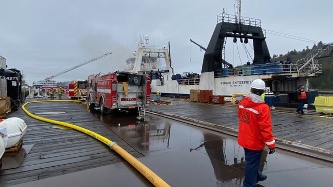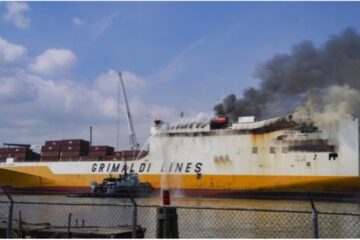The Polluter Pays – Sometimes
By Fred Kuffler, Partner, Montgomery, McKracken, Walker & Rhoades, LLP
OPA 90 PRECLUDES USA’S LIABILITY FOR CONTRIBUTION TO THE RESPONSIBLE PARTY FOR REMOVAL COSTS AND DAMAGES
Savage Services Corp v. USA, 25 F. 4th 925 (11th Cir. 2022)
In the first case to examine the issues, the Federal Court of Appeals held that even where it
is negligent, OPA 90 as the exclusive vehicle for a remedy shields the federal government
for liability to the spiller for contribution covering the OPA removal costs and damages the
spiller had incurred.
The essential facts are quickly recited: The Army Corps of Engineers’ negligence holed
Savage’s loaded barge, spilling its oil cargo. Savage paid the removal costs and then
sought contribution from the government under the provision in OPA whereby “Any person
may bring a civil action for contribution against any other person who is liable or may be
potentially liable under this Act or another law.” 33 USC §2709.
The Court analyzed first whether OPA provides any remedy, and then whether OPA
provided the injured party’s exclusive remedy precluding Savage from resorting to “another
law.”
OPA Fails to Provide a Remedy. The court began its reasoning noting that OPA in
amending the earlier Federal Water Pollution had stripped the spiller of the defense of
government negligence. The Court then held that the government was not a “person”
under the above section as that term is defined in OPA itself. Finally, the court held that
Savage could not take advantage of the defense to liability where the spill is the sole fault
of a “third party.” 33 USC §2703, because the United States as the entity to which the
spiller is liable is not a “third party,” i. e. a stranger to the event, but rather is the “second”
party.
OPA Provides the Spiller’s Exclusive Remedy. The Court rejected Savage’s contention,
based on its recognition that the government must waive its immunity for a claim to
proceed, that it could bring its claims under common law because the government had
waived its sovereign immunity under the Suits in Admiralty Act. But the Court held first that
The SAA was only a general waiver, whereas OPA, the specific statute, was silent, thus
indicating there was no waiver. Savage relied on the Savings Clause stating that “Except as
otherwise provided in this Act, this Act does not affect…admiralty and maritime law.” 33
USC §2751. Reasoning this clause related only to matters OPA did not address, the court
found that OPA had addressed the matter of the government’s liability as already
discussed above and so the Savings Clause was inapplicable.
Savage wound up with no recourse.
But the result runs afoul of the public policy principle undergirding OPA – “The polluter
pays.” The Court failed to discuss this issue. Instead, it treated policy in terms of whether
the taxpayer funded the costs, as with the Oil Spill Liability Trust Fund as constituted under
the FWPCA, or the oil industry, as is the case under the Fund as modified by OPA. The
Court reasoned that if it allowed Savage to recover, the funding would come from the
general treasury and not the oil industry, thus contravening OPA’s purpose.
Also, by insulating the government from liability, the Court has deprived the government of
any incentive to act carefully-another policy at OPA’s foundation.
A future case will need to resolve these conflicting policies.


